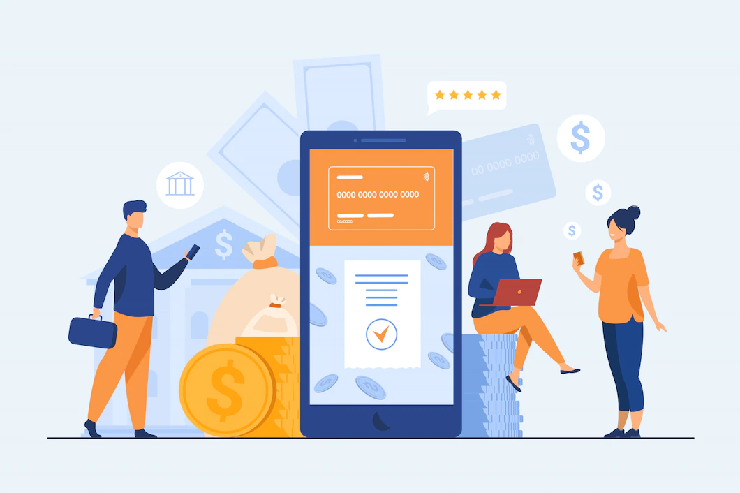
With the increasing financial and entrepreneurial need and revolutionary ideas of investments and funding. There is an immediate need in the market to have innovative fintech, business models. However, suppose you are anyone from a finance background or willing to pursue your career in financial technology. In that case, you must know that you first need a deep understanding of the subject matter.
Fintech is vast and dynamic as the technology changes at a higher pace every day. Thus, you need to be adaptable if you want to cope with the emerging technologies in fintech. To help you understand fintech deeper, we have got some innovative fintech business models.
Fintech Business Models You Need To Know About
Read these fintech business models to stay a step ahead of your competitors.
1. Digital Banking
In the digital era where every industry is stepping towards digitalization, banks and financial institutes must also match the steps with the world. They had to forgo their traditional banking and investment methods as people are more comfortable with digital banking.
Digital banking significantly impacted the customers in 2020 when everyone was bound to be at home. Thus, banks had no other option than to serve their customers digitally.
Now, many banks don’t even have physical branches as well. Additionally, there is a stats presented by KPMG (a consulting firm) that says the fintech industry is growing at an increasing rate. Probably, it will touch 158,014.3 million while growing with a CAGR of 9.2% in the year 2023.

2. Digital Wallets
Since everything is being digitalized, then why not the money? With this thought process, digital wallets came into the market. Users can deposit their money from the bank to the digital wallet through online payment gateways.
Anyone can use this wallet anywhere, from shopping for online products to offline purchases. You can use this money anywhere, any time! The good thing is that, as of now, there is no transaction fee for the end-user. However, the business accepting money through wallets has to pay a fixed or variable amount as a transaction fee. This is the revenue source of digital wallets.
You need proper banking setup to develop a digital wallet fintech startup as it involves huge investments, skills of making money through wallet deposits, etc. The huge entities in the business are GPay, Venmo, and Square Cash.
In the future of fintech, digital wallets will rule the world as they have already created a huge clientele. In the coming time, it will be a primary payment mechanism. The ones who made the setup now can have a business worth millions of dollars.
3. Asset Management
Asset management is directly linked with the stock exchange, trade marketing, and mutual funds.
Earlier, people used to give a trade fee or commission to the stock exchange experts/consultants. Now, the fintech startups have created an innovative fintech business model where the public can trade in the market without giving any trading fee or commission.
So how do stock exchange consultants earn? They let you trade free of cost while exchanging data. Your personal data like email address and mobile number are then given to the high-frequency traders.
The high-frequency traders try to convince you to sell your assets to them at a fixed price, which will be more than the profit you are earning directly. The final transaction commission is then given to the asset managers (or the profit margin).

4. Digital Insurance
If all financial products are digitalized, why would insurance services stay behind! While insurance is a mandatory financial product, it has also made its presence in the digital world. Now users can easily purchase or renew their insurance plans. Moreover, it is now easier to check insurance-related information on digital platforms.
Additionally, the frauds related to insurance services have significantly declined due to transparency. Now people are more confident buying insurance online as all information is available on the website.
The infrastructure and operation expenses are reduced by incorporating technology into finance, resulting in cheaper and affordable offers.
5. Payment Gateways
These are similar to digital wallets. The primary or most significant difference is that in digital wallets, you first deposit money in the wallet, and then transactions occur. Whereas in the case of payment gateways, they give you an online platform to make payments.
Payment gateways help you make cashless transactions without any hustle. Sounds convenient? What if you also create such a payment gateway.
Paypal is a payment gateway, which people use most of the time for international transactions. Do you know the best part of owning or working for a payment gateway? You can integrate almost all payment gateways with your website or funds collection page.
You can also read “Top 7 Essential Features For Taking Payments On Your Website“.

Conclusion
Bookmark this blog If you were looking for some good fintech business model to inspire yourself to start something or dig deeper into emerging technologies in fintech.
